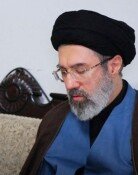[Op-Ed] Hatoyamas Dilemma
The Yukio Hatoyama administration in Japan is in dilemma after having taken office in September. Its approval rating has plummeted to 59 percent from the 75 percent it enjoyed early in its term. Though the figure is relatively higher than previous administrations, the pace of decline is rapid. The gap between the administrations election pledges and reality is a major source of trouble.
In his election campaign, Hatoyama promised to remove a U.S. Air Force base in Futenma outside of Okinawa. Washington, however, has urged Tokyo to stick to their bilateral realignment plan reached in 2006 to relocate Futenmas air operations to Camp Schwab in Okinawa. The dispute over the relocation has fueled U.S. mistrust in Japan. Japans bilateral ties with the U.S., the cornerstone of Japanese foreign policy, are also at their lowest point. The U.S. has delayed a bilateral meeting on strengthening its alliance with Japan in the run-up to the 30th anniversary of their bilateral security treaty.
The Hatoyama administration has also promised to turn its export-driven and large corporation-centered economy into one driven by domestic consumption and focusing on social welfare. Amid the global economic crisis and a strong yen, however, many criticize such a pledge as a populist move that could lead to recession. Tokyo yesterday announced a supplementary budget of 7.2 trillion yen (8.09 trillion U.S. dollars) to revive the economy, but whether it will prove effective is unclear. Japans national debt-to-GDP ratio for next year is an estimated 199.8 percent, far higher than Koreas 36.9 percent and the U.S. 97.3 percent. Rumors that the prime minister took illegal political funds and friction between the ruling coalition and his Democratic Party of Japan are also blamed for the falling approval rating.
The Japanese daily Asahi Shimbun said last month, Seeing a change to its approval rating, the Hatoyama administration resembles the previous Morihiro Hosokawa administration, which took office under a coalition without the Liberal Democratic Party and lost power eight months afterwards. Hosokawas early resignation was blamed on worsened ties with the U.S., the economic downturn, and a political funds scandal involving the prime mister. Former Japanese Prime Minister Junichiro Koizumi said several days ago, The Hatoyama administration will not last until parliamentary elections are held in July next year. It is too early to forecast the early demise of the Hatoyama government, which wrested a 54-year stranglehold on power from the Liberal Democratic Party, but what is clear is that it faces a rocky road. Recent developments in Japan drive home the saying that leading an administration is as hard as winning an election.
Editorial Writer Kwon Soon-hwal (shkwon@donga.com)







